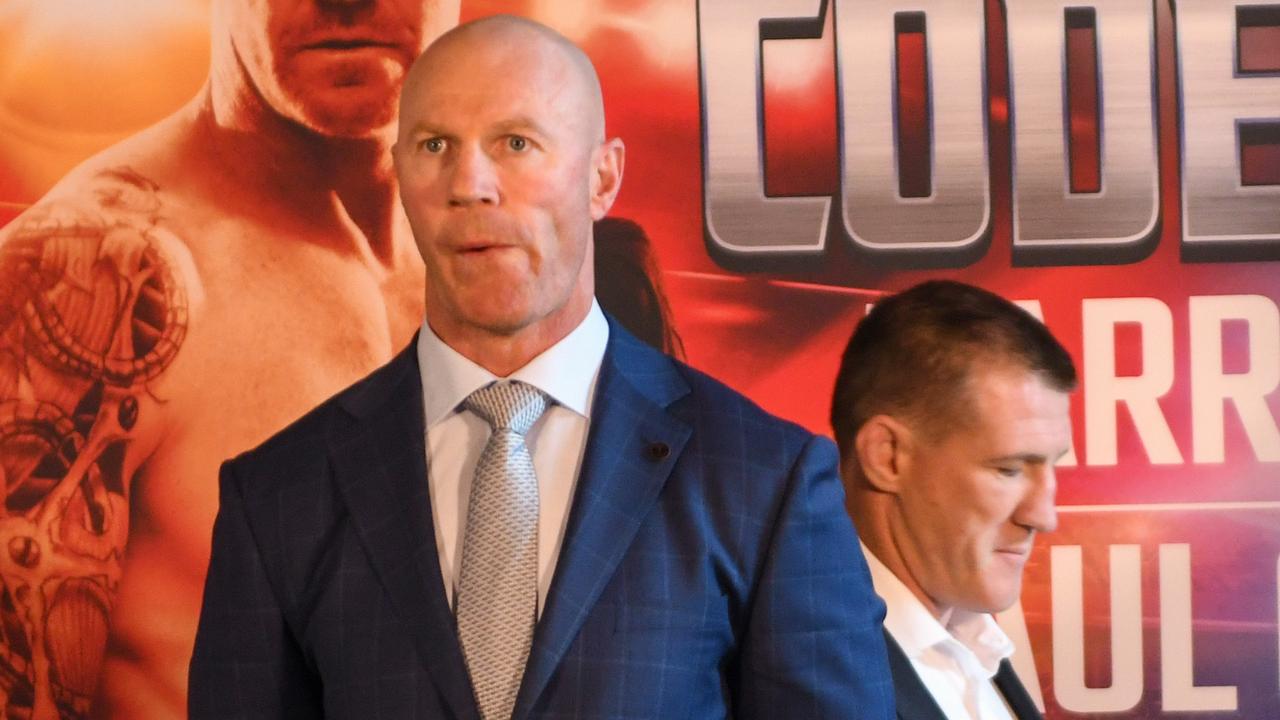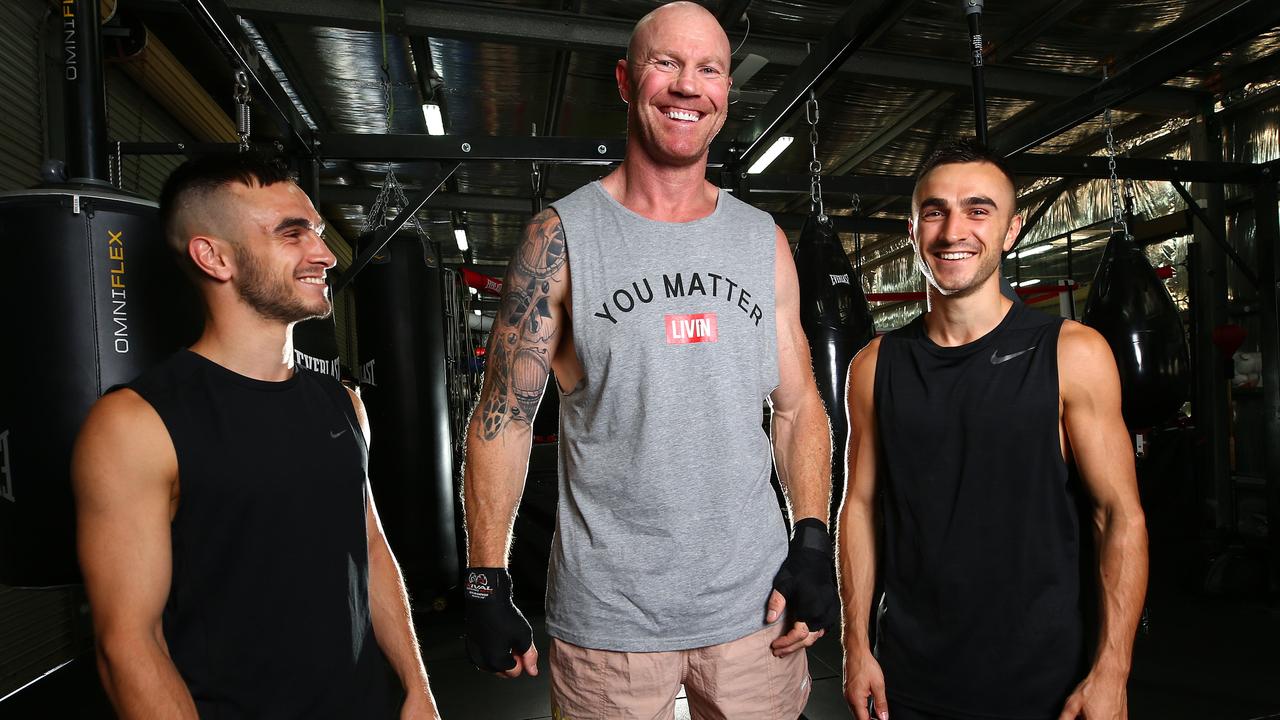How James Hird went from Essendon’s golden boy to fallen hero
JAMES Hird had to be talked into taking the job of coaching Essendon in 2010. Little could he — or anyone — know how the fairytale would unravel.
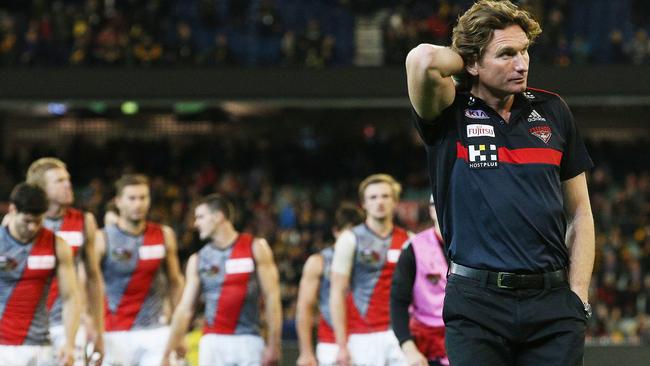
AFL
Don't miss out on the headlines from AFL. Followed categories will be added to My News.
JAMES Hird spent 2010 under the bright lights of the Fox Footy studios and penning columns for the Herald Sun.
His sports marketing and media company, Gemba, filled his diary and his passport.
Hird and wife Tania also had four fast-growing children to raise. The Essendon legend wasn’t Eddie Everywhere, but he was much in demand. He’d never been busier since calling time on his celebrated playing career at the end of 2007.
HOSPITAL: FEARS FOR HIRD AFTER OVERDOSE
All the while, as Essendon struggled under rookie coach Matthew Knights, the drums were beating.
Important people at Windy Hill also wanted Hird.
And by the end of the 2010 season, he’d been convinced. The golden child, the premiership captain and Brownlow medallist, was returning as coach of the Bombers.
Little could Hird — or anyone — know how the fairytale would unravel.
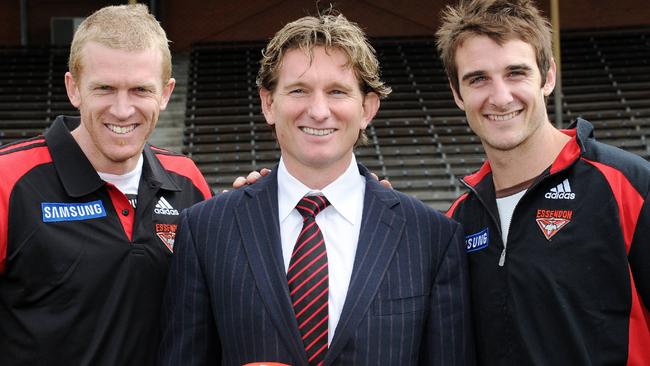
Then-club chairman David Evans touted his friend’s “knowledge of the modern game, the comprehensive plan he has for our young and talented playing group and his proven leadership and people management skills” in announcing a rich four-year deal.
Hird said he was “proud and privileged” to coach the club he had grown up supporting before joining its playing ranks and amassing 253 games, two premierships — captaining one — and the 1996 Brownlow Medal. The 2010 season had ended with the Bombers languishing in 14th position, with a sorry 7-15 record.
Things largely went to plan early in the piece — fans rejoiced in September action in year one of the Hird reign.
That month, then-club fitness boss Dean Robinson later claimed Hird hosted him and sports scientist Stephen Dank at his Toorak home, the trio discussing how they would accelerate progress via “cutting-edge” science.
Robinson famously used the term “black ops” to describe the program, while Hird later admitted that if he had his time again, he would “trust less ... ask more questions and demand more answers” of those involved.
Australian sport endured what was dubbed its “blackest day” in February 2013, when politicians declared cheating to be endemic in this country.
The night before, Hird’s phone rang. He was celebrating his 40th birthday, but it wasn’t a happy call.
It was Evans, demanding the coach come to his Hawthorn home amid allegations that then-league chief Andrew Demetriou had told Evans the club was suspected of using banned drugs.
Under the glare of TV lights two days later at AFL House, Hird shared the unwanted spotlight with Evans and then-club CEO Ian Robson.
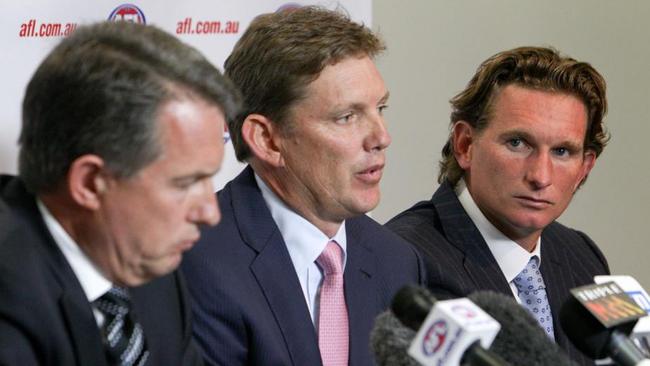
“I’m shocked to be sitting here,” he said.
Evans declared the claims and whispers “a minefield”.
Hird was adamant the investigation needed to move quickly.
‘‘We want to get it done,” he said. “We want to come out with a clean bill of health.
“We want to move on with the footy season.’’
Neither wish would come true. April saw the first of many false dawns — his team pulling off a pulsating come-from-behind win over Fremantle in Perth. A win, but they were few and far between.
He was interviewed by the Australian Sports Anti-Doping Authority and the AFL in the following week for hours.
Reports and resignations — including those of Robson and Evans — ensued. Then came the law suits.
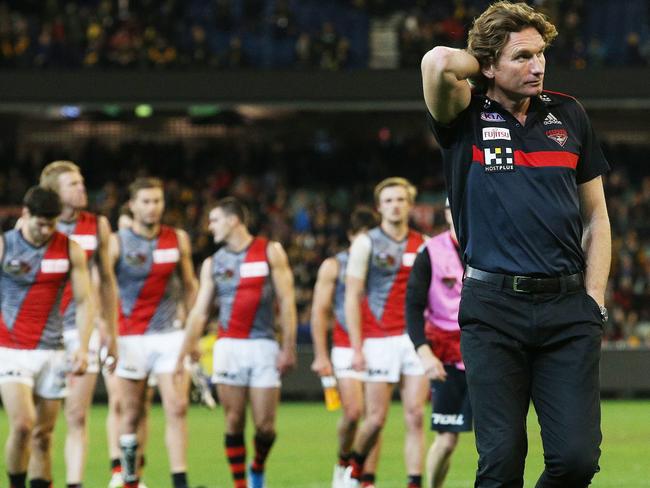
Hird sought relief against the AFL in the Supreme Court, claiming he had been denied natural justice.
In a crippling AFL Commission meeting, Essendon was banned from the 2013 finals and the club fined $2 million.
Hird was banned for 12 months, a suspension he accepted but later would say was unfairly forced on him.
Hird remained on a $1 million salary, more than enough to support business schooling in France.
In March 2015, as Hird prepared for the first home-and-away game of his second coming as Essendon coach, the players were exonerated on doping charges by the AFL.
The World Anti-Doping Agency would appeal the ruling — and ultimately win. Just days after a calamitous 112-point Round 20 loss to Adelaide — 921 days after the club had “self-reported” to ASADA — Hird was gone.
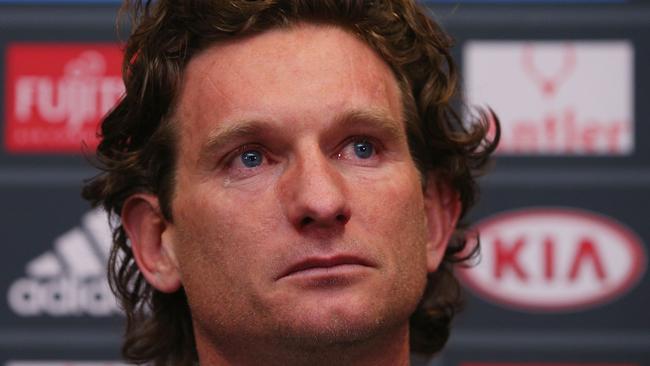
“Essendon has always been in my heart since I was young,” he said.
“I’ve always cared deeply about the players. I truly thank you with all my heart.”
No matter where people stand on Hird and the Bombers, surely everyone today wishes him a recovery to full health and happiness.
Follow Lauren Wood on Twitter: @LaurenA_Wood
Originally published as How James Hird went from Essendon’s golden boy to fallen hero


